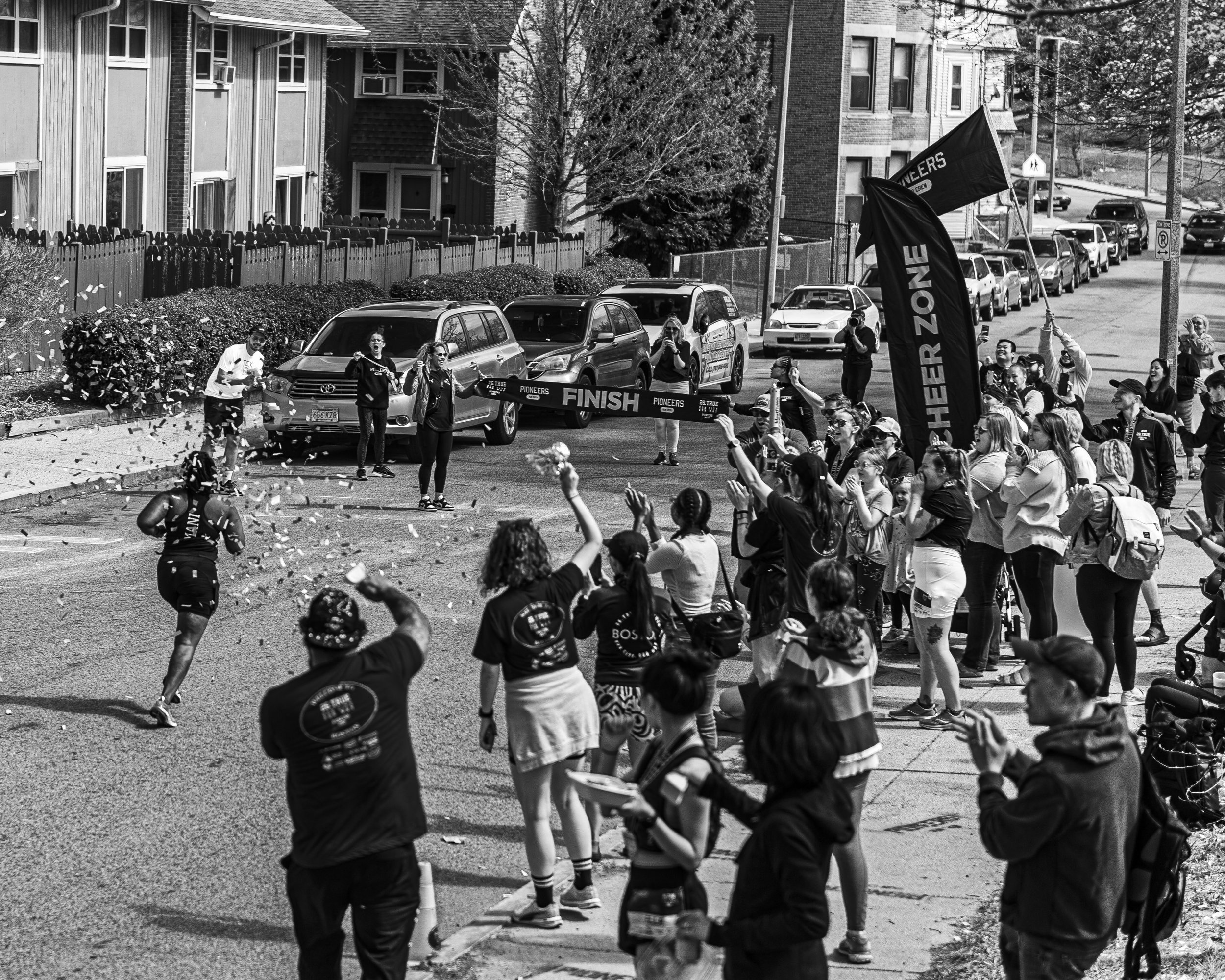
Beginner Marathon Training Plan
How to read this plan
The goal of all of our plans is to get you to the finish line healthy!
These comprehensive plans include base miles, running drills, strength training to keep you strong, and prehab to stave off the most common running injuries.
This may not look like the plans you’re used to.
You’ll notice there are ranges for (almost) every run. This is designed to give you options to do less when you need to listen to your body (and you should!).
Remember, you’ll have success whether you follow the high-end range or the low-end range numbers – less can be more when it comes to training! At the end of the day, you need to be able to let your body (not the plan!) dictate the training. The plan is a guide and can be modified to meet your needs. If there are days that you are tired or don’t feel like running, lift or cross-train instead! Or REST! It’s better to show up at the start line a little undertrained and uninjured than overtrained and hurt. You got this!
Workouts
Base Miles
These will make up the bulk of your training! These are the miles that help make your body resilient over time.
These should be done at a “conversational pace”. You should be able to hold a full conversation without having to catch your breath while talking. These miles should always feel controlled – that means you may have to force yourself to run slower!
RPE 3–5/10*
Long Runs
These miles are the miles that prepare you for race day! These runs are the closest exposure you'll get to race day. Use them to practice fueling too!
We strongly recommend that you combine running and walking these days. A good place to start would be 10 minutes of running and 1-2 minutes of walking. This allows you to break up the run, drink some fluid, take in some fuel, and eliminate some of the impact to reduce your risk of injury but also increase your chance of success.
RPE 3–5/10
Hills
Hills pay the bills! There's no better workout in running than hills because it forces you to have more efficient form, makes you stronger, and boosts your cardiovascular system. You’ll be doing two phases of hills over the course of your training plan.
-
Find a hill that takes roughly 90 seconds to run up at a 6/10 RPE. After you complete each uphill, stop and WALK the downhill.
Running downhill, especially fast, dramatically increases the stress on your tendons. Early in training, there is no need to overdo it. Walking the downhill gives you a nice recovery period in between repetitions. If you’re very winded, take an additional 30-60 rest between reps.
RPE 6/10
You should still be able to speak 5-10 word sentences, but your legs and lungs should feel the effort at the top of each hill.
Think "smooth and controlled."
-
Long hills are the same as Phase 1 in duration (roughly 90 seconds uphill) but will progress in intensity. You’ll follow this pattern:
1 rep easy RPE 5/10
1 rep medium RPE 6/10
1 rep hard RPE 7/10 (7 out of 10 means you COULD keep going but when you stop you're thankful that you don’t have to keep going)
Repeat per the plan suggestion. Try to start straight into the next reps without rest beyond the downhill portion.
You may choose to walk the downhill portion of these reps OR opt for a very slow and controlled run down.
-
Short hills or “sprint style” are 20-30 second intervals.
These can be done on the same hill but you will turn around after 20-30 seconds of uphill and run back down.
Your uphill sprint does not have to be a true sprint, but choose a speed you would not be able to hold much beyond a 30-second interval.
RPE 8-9/10
Cross-Training
For the purposes of this plan, cross-training is any non-impact cardiovascular exercise. This includes:
swimming
biking
the elliptical
stair climbing
walking
hiking
Keep in mind that cross-training days are supplemental and should be of mild intensity (much like an easy run, or easier!)
It should not be the hardest effort of your week, so don’t go doing a very hard peloton class or a stadium stair section workout. Extra work is not always a good thing!
Rest Days
Yes, rest is most definitely a specific workout. Training for a marathon is difficult! It’s hard on your body, it’s hard on you mentally, and rest days are as important (if not more!) than your run days!
RPE 0/10

